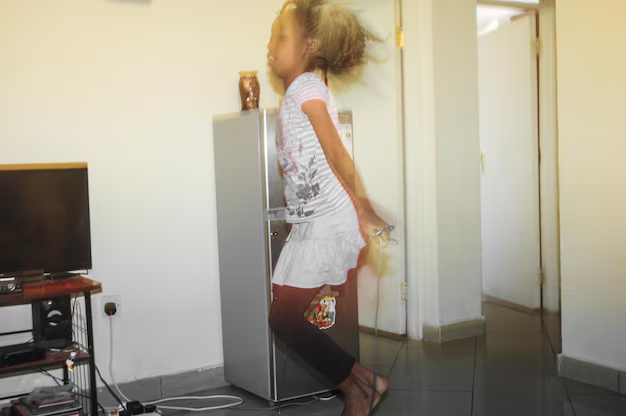Understanding and Fixing Water Leaks from Your Refrigerator
Do you find yourself constantly mopping up water pooling beneath your refrigerator? It's frustrating, inconvenient, and potentially damaging to your kitchen floor if left unchecked. If you’re wondering, “Why does my refrigerator leak water from the bottom?” you’re not alone. Many homeowners face this challenge, and thankfully, most causes are relatively simple to diagnose and fix.
Let’s delve into the common reasons behind these pesky leaks, providing you with clear insights and practical solutions to keep your fridge—and your kitchen—dry and functional.
Common Reasons for Refrigerator Leaks
Understanding the root cause of your refrigerator’s water leakage is the first step toward resolving the issue effectively. Here are some of the most common reasons water might be pooling under your fridge:
1. Blocked Defrost Drain
The defrost drain can become clogged with food particles or ice. When the drain is blocked, it can cause water from the melting ice to overflow and leak out.
How to Fix:
- Unplug Your Refrigerator: Always begin with safety by cutting off the power supply.
- Clear the Drain: Use a solution of hot water to melt any ice clog and clear away debris. A small funnel or turkey baster can help direct the water flow.
- Perform Regular Checks: Avoid future clogs by routinely checking and cleaning the drain.
2. Water Filter Issues
Improper installation of water filters can lead to leakage. It’s vital to ensure the filter is correctly attached to its housing.
How to Fix:
- Check for Compatibility: Ensure you are using the right filter model for your refrigerator.
- Tighten or Replace: Make sure the filter is securely fastened. If the problem persists, consider replacing it with a new filter.
3. Damaged Water Inlet Valve
A faulty water inlet valve, which supplies water to the dispenser and ice maker, might drip or not shut off properly, leading to a leak.
How to Fix:
- Inspect the Valve: Listen for abnormal sounds or water dripping during use.
- Replace If Necessary: If damaged or malfunctioning, the valve should be replaced by a professional technician to avoid further issues.
4. Improper Leveling
A refrigerator that isn't properly aligned could cause the water inside to not flow into the drainage system correctly, thereby seeping out instead.
How to Fix:
- Check the Fridge's Alignment: Ensure that the refrigerator is perfectly level. Adjust the refrigerator's feet to balance out any discrepancies.
- Secure and Test: Once adjusted, monitor your refrigerator over time to ensure there are no further leaks.
Preventative Maintenance Tips
Regular Inspection
Performing a regular inspection can prevent most of the issues that lead to leaks.
- Monthly Monitoring: Check the condition of seals, hoses, and drains.
- Cleanliness is Key: Regularly clean under and behind your fridge to prevent the build-up of dust and grime that can lead to appliance malfunctions.
Systematic Cleaning Schedule
Incorporate a cleaning schedule into your monthly maintenance routine.
- Drain Cleaning: Use a mixture of vinegar and hot water to keep the defrost drain clear.
- Filter Changes: Follow the manufacturer’s guidance on changing filters, usually every six months.
When to Call a Professional
Not all problems are DIY-friendly. It’s important to know when a leaking fridge requires a professional’s touch to avoid potential hazards and expensive repairs.
- Electrical Concerns: If water is affecting electrical components, you could face a serious risk.
- Persistent Leaks: If the leak continues after trying the above solutions, professional intervention will likely be needed.
- Complex Issues: Certain components, such as the compressor or coolant lines, should always be assessed by trained technicians.
Practical Tips and Quick Fixes 💡
Here's a quick guide to potential issues and easy fixes to help you stay prepared:
- 🚿 Clear Blockages Regularly: Make it a monthly task to clean drains and filters.
- ⚙️ Replace Shelf Liners: Protect from minor spills seeping into the components below.
- 📐 Keep It Level: Regularly check the fridge’s placement to prevent misalignment.
- 📅 Schedule Maintenance: Mark your calendar for routine inspections to avoid cumulative problems.
Common Questions about Refrigerator Leaks
How often should I replace my refrigerator’s water filter?
Typically, every six months. However, this can vary based on usage and water quality.
Can a small puddle of water cause significant damage if ignored?
Yes, prolonged exposure to moisture can lead to mold, warping of floors, and electrical issues.
Why does my fridge suddenly start leaking after years of use without issues?
As appliances age, normal wear and tear can lead to component degradation and leaks. Regular maintenance can mitigate many age-related problems.
Is it safe to use the refrigerator while it’s leaking?
No, using an appliance with water leakage can pose an electrical hazard. Unplug it and resolve any leaks before further use.
Wrapping It Up
Addressing a leaking refrigerator might seem daunting, but by understanding common causes and solutions, the task becomes more manageable. Regular maintenance and prompt attention to any signs of trouble can prevent water damage and prolong the life of your appliance. Remember, while DIY fixes can be effective, professional help is there when needed to ensure the continued efficiency and safety of your refrigerator. Stay proactive in upkeep, and enjoy the seamless functionality of a dry, well-maintained kitchen!

